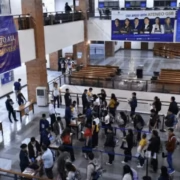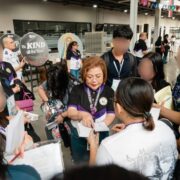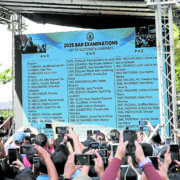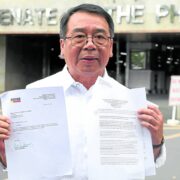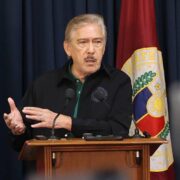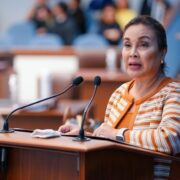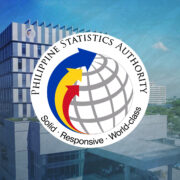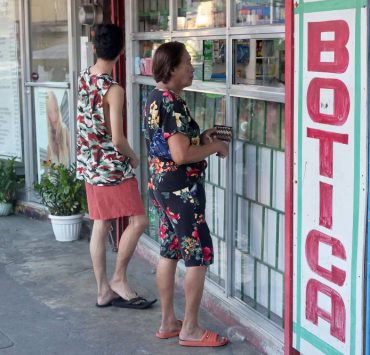Lessons from 4 inspiring women
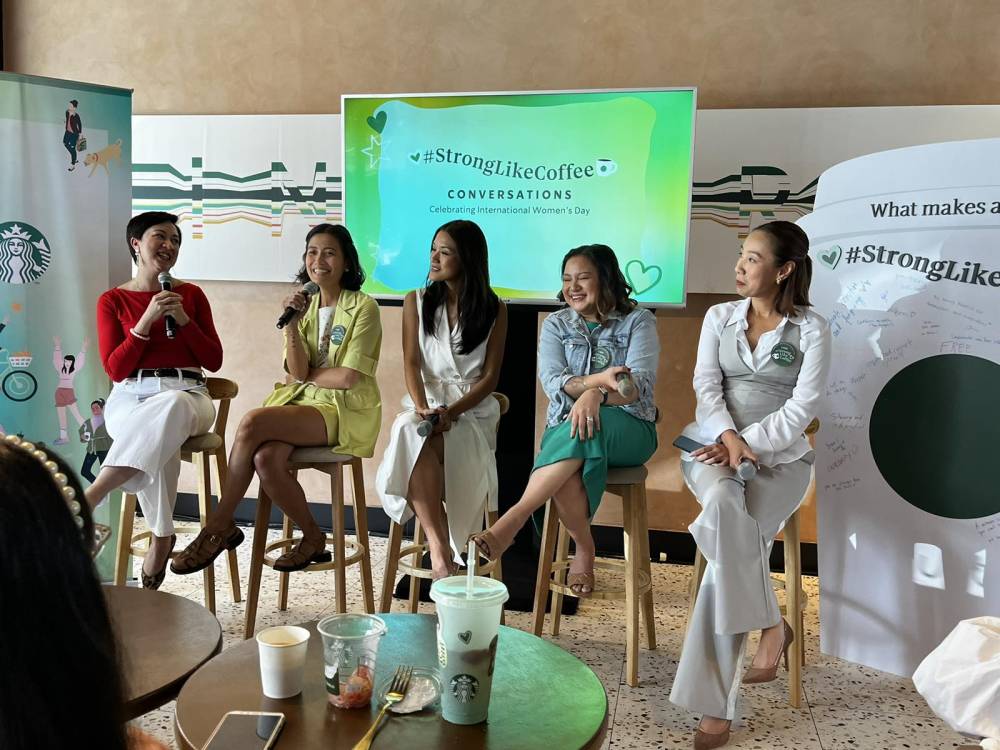
Starbucks Philippines welcomed Women’s Month with #StrongLikeCoffee Conversations on Feb. 29. The panel featured inspiring women who talked about their careers, mental health and sustainability.
The event was held at the Starbucks Abad Santos Tondo Community Store.
“We really wanted to reach out to our future Gen Z leaders and there was no better avenue than to start with our beneficiaries of the community store,” said Jamie Silva, Starbucks’ senior manager for marketing, digital customer service and loyalty.
The attendees were from the Tondo area—learners from nonprofits Young Focus and AHA Learning Center.
The Starbucks Abad Santos Tondo Community Store opened in September. “The goal of the Community Store is to give back to that specific community for a cause. A portion of the sales are donated to AHA Learning Center and Young Focus and the cause is youth education. With Young Focus, the focus is scholarships, and we complement that with AHA Learning Center, which focuses on after-school learning. So the young women here are scholars of Young Focus and learners of AHA,” said Silva.
The panel included Silva; Lynn Pinugu, cofounder and CEO of She Talks Asia and Mano Amiga Philippines and Inquirer columnist; Project 8 Projects’ and “Ang Walang Kwentang Podcast’s” Antoinette Jadaone, who is a director, writer, producer and podcaster; and Anina Rubio, visual artist, environmental advocate and breathwork coach.
The attendees were led through meditation and breathwork by Rubio.
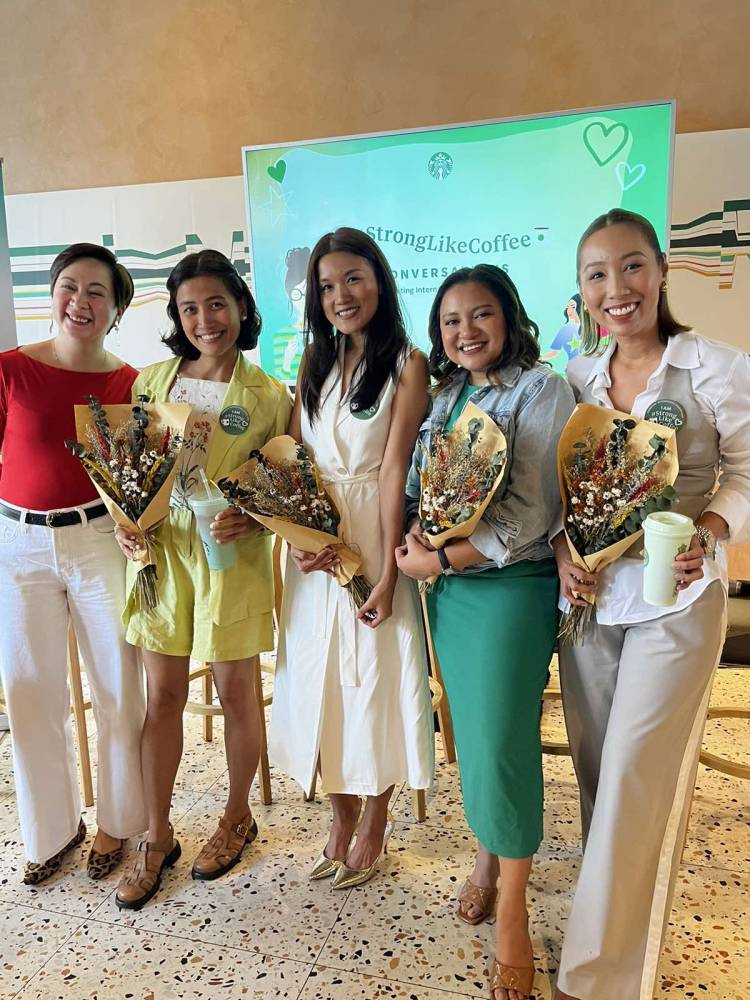
Gratitude
She said, “I start my day with gratitude, the three things I’m grateful for. We’re programmed to find mistakes or the things that we haven’t gotten … but you have to think about everything that you have. Gratitude is so important. You are alive, you are breathing, you are here right now, you are showing up for yourself. Kung ngayon surviving mode ka, bukas thriving mode ka na. Gratitude will change your mindset.”
Char Vilchez, Starbucks’ marketing and global responsibility manager, hosted the discussion. The panelists shared their memories as students and looked back on their career journeys. They talked about overcoming challenges and the importance of not being afraid to fail.
“I went through a lot,” said Rubio. “I was an engineer, a farmer, a marketing person, a teache r… before being in the creative industry, I was looking for my passion. It was really a journey of failures and being open to failure. With that mindset, being open to failing, you’re also opening yourself up to learning. The only way for you to learn is to experience multiple things in life. If you don’t know yet what you want to do in life, it’s okay. You will eventually find it.”
Pinugu used to dream of being a journalist, she said, but became an educator and social entrepreneur instead. “I didn’t stop writing, I didn’t stop reading good books because I heard that’s the best way to learn how to write.”
Years later, her dream of writing for a newspaper came true when she became an Opinion columnist for this broadsheet.
“It’s easy to compare our journey to others but we need to stop that,” Pinugu said. “It’s important to ask—what is it that you want to strengthen in yourself? Whether it’s public speaking, becoming a leader or writing, practice and do what you can to be good at it. The constant practicing was really helpful to me.”
Jadaone was sold on her dream to become a director as early as high school. But, she said, “I was very realistic and patient. It takes years to become a success. In my field, it only takes one break and I wanted to be sure I was ready for that break. Before I became director, I was editor, script continuity supervisor, a photographer … I knew I had to do all those things to prepare. I was preparing for that bigger goal. I knew that it would all be part of the story I would tell someday.”
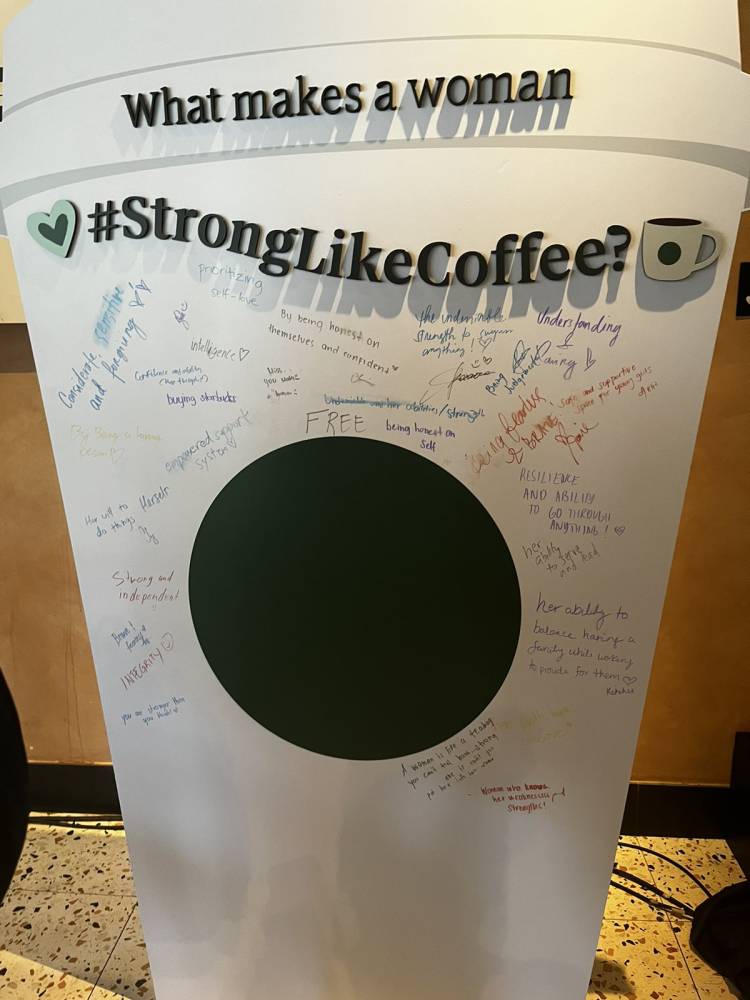
‘Hero’s journey’
She called it “a hero’s journey,” and compared life to a superhero movie. “‘Di ba yung hero hindi naman siya magaling sa umpisa. The best stories start na hindi siya magaling, then they face hurdles, may villain, and in the end, nagtatagumpay. As a storyteller, as a film director, gusto ko yung life ko, box office hit siya. Hindi pwedeng sa start pa lang, nag-give up ka na.”
She remembers a professor in college—someone with a reputation for being a terror. “She asked us to submit a short film. After she watched my three-minute film, she asked, ‘Is this something you want to do for a long time?’ I replied, ‘Yes po, ma’am.’ And she said, ‘I’m glad.’ You just need one person to believe in you.”
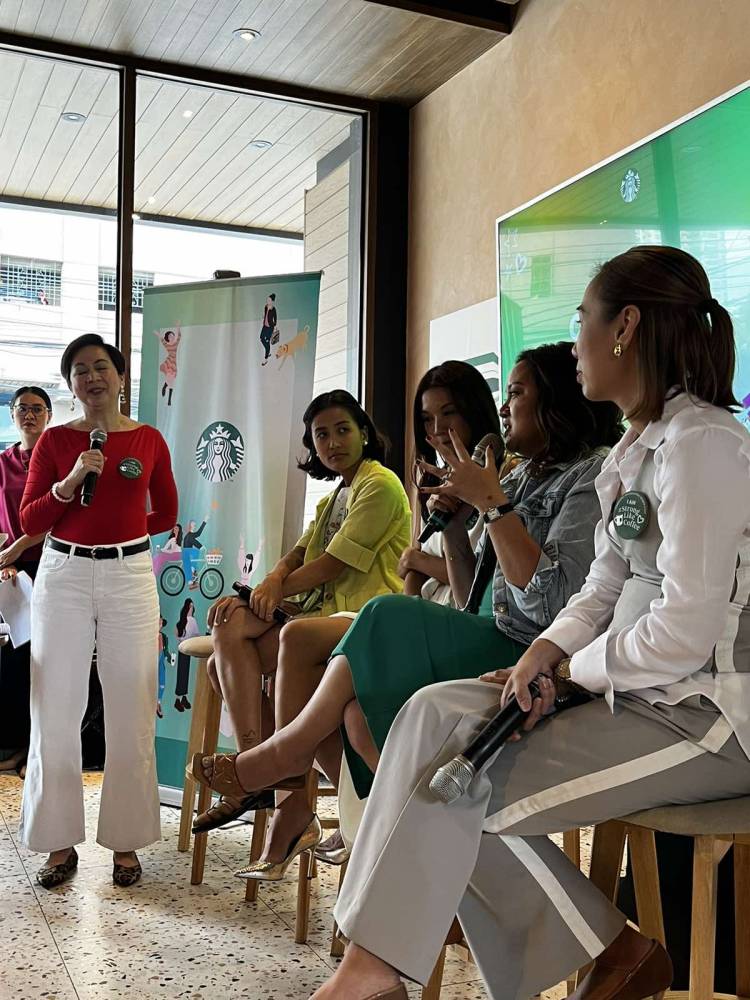
Mentors are important as well.
For Jadaone, it was director Joyce Bernal who she worked with alongside director Irene Villamor. “She was first my idol before she became my mentor. Just seeing her, a woman in a male-dominated industry like film, was a huge thing for me. It was normal for me to see her giving men instructions on set. ‘Yung pagiging mahusay, competent, efficient director of Direk Joyce and Direk Irene, that’s what I grew up with. In my world, women are always strong. I was raised by very strong women.”
One of Pinugu’s mentors is Karen Davila. “One of the things she told me is, you have to accept that the world is unfair. Pero huwag tayo magpapatalo, don’t give up. Find other opportunities. Be assertive. Another thing she told us is to bring other women with you. Hindi pwedeng ikaw lang ‘yung empowered.”
Silva added, “My mentor said, ‘If you’re given a broom, be the best sweeper you can be.’ Think of the now … Be the best version of yourself.”
“You can be anyone you want to be,” said Pinugu.
Rubio shared how she deals with rejection as an artist. “Art is very subjective so there will always be someone who will dislike what you’re doing. I’m very open to feedback, if someone tells me pangit yung gawa ko, I’m not gonna cry, I will ask, how can I improve? Don’t take things personally. If constructive feedback ‘yan, thank you sa ambag, if hindi, thank you, pero busy ako. You have to filter.”
Mental healthThey discussed the importance of mental health as well.
Pinugu said, “We take care of our bodies but we’re not just bodies, we have our mind too. Lahat tayo may pinagdaanan, we all go through things.”
“Igalaw mo siya,” said Rubio. “Emotions mean energy in motion. Huwag mong ipunin.”
Silva agreed. “Take care of your body and mind together. I’m an advocate of exercise. The first thing I do when I wake up is to run, that’s how I deal with stress. Happy hormones—totoo siya.”
Jadaone talked about the value of having a support group. “You will learn which of your friends you can really trust with your emotions and who understand you. They will reveal themselves … Find your support group, find your trusted friends na tutulungan ka, but at the same time, also be that friend to someone. Friendships are two-way. And friendships take work.”
Silva said, “In such a fast-paced world, especially this generation, pause. Find time to pause and do whatever, you can even do nothing.”
There should be no shame in asking for help—whether from friends, the adults in your life or from professionals, they said. “If you are overwhelmed, don’t be afraid to reach out to the grownups around you… don’t be ashamed to ask for help. It’s okay to ask for help, and the earlier you ask for help, the better,” Silva said.
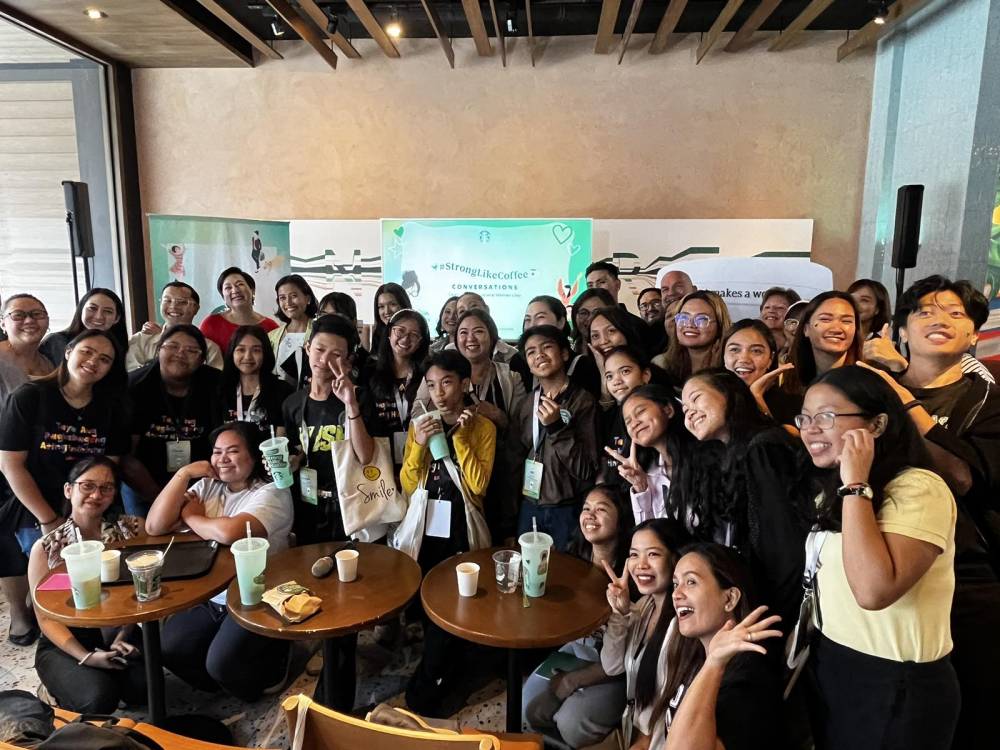
Compassion
The panel ended with a discussion on sustainability. Rubio said, “We are nature also. If we can take good care of nature, nature can take good care of us. You can do something about it. You don’t have to be a scientist to protect the environment. No action is too small. Small acts of kindness toward each other and towards the planet can create an ocean of change. Be kind to yourself, be kind to nature, be kind to others. Always show compassion.”
The learners were engaged throughout the session, asking the panelists questions after the discussion.
AHA Learning Center founder Jaton Zulueta told Lifestyle, “It’s important to see who you want to be. You can’t be who you can’t see. When they’re able to meet strong women who are fighting for their rights and others and who are dreaming not only for themselves but for the good of the women in the country, then they see paths moving forward. We at AHA Learning Center are really trying to create women who lead themselves and others.”
Starbucks plans on opening more Community Stores in the country. Silva said, “This is not lip service… We are dedicated to youth education. The pressing issue of this community is poverty. There are so many ways to address poverty but a sustainable way of addressing poverty is through education.”
After the panel, the attendees, speakers and guests took pictures, mingled and continued talking.
“What did you learn today?” Vilchez asked. One of the attendees replied, “I am strong like coffee.”

